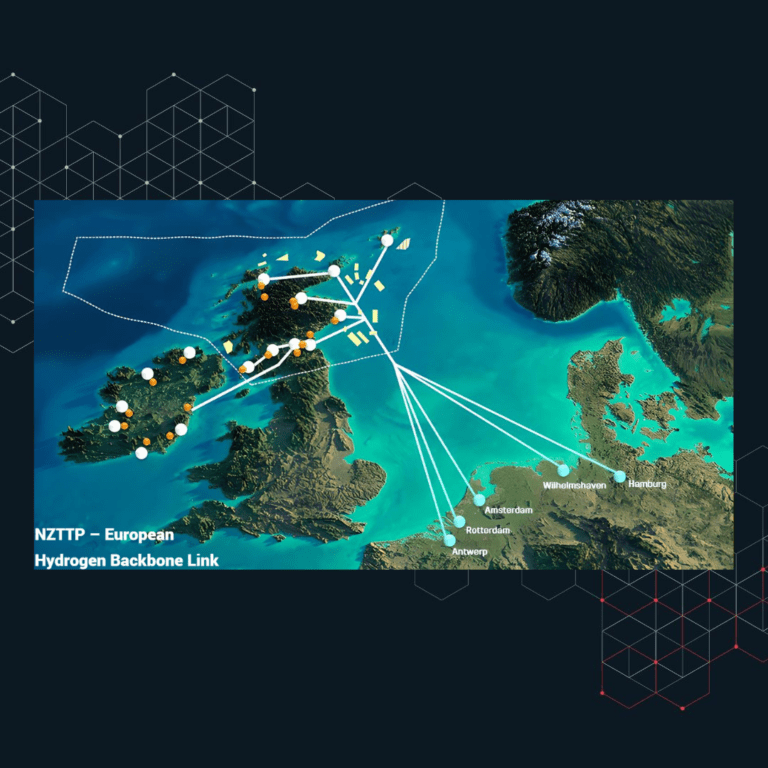DECIDE (Define CO₂ Impurities; Decrease Emissions) Project Concludes: Advancing Corrosion Risk Management and Material Selection in CCS Systems
We are thrilled to announce the successful conclusion of the DECIDE project (Define CO₂ Impurities; Decrease Emissions), a collaborative effort between OGC Energy, the University of Sheffield, and Sheffield Hallam University. This groundbreaking project has significantly advanced corrosion management and material selection within Carbon Capture and Storage (CCS) systems. Through rigorous research and innovation, the project has conducted a comprehensive technical report that addresses critical challenges in the field.
Key Findings and Achievements:
The DECIDE project’s technical report provides a wealth of insights and knowledge for the CCS industry. It includes an in-depth analysis of impurity limits, corrosion factors, material selection, modelling, materials testing, and technology capabilities for impurity removal. One of the notable accomplishments of DECIDE is the development of a groundbreaking methodology for testing CO₂ impurities, featuring an innovative apparatus and an optimized design of experiments. This methodology has the potential to revolutionize how impurity testing is conducted in the industry.
Contributions to Industry:
The knowledge generated through the DECIDE project can have a significant impact on industry programs such as AMPP 21577 – Guideline for Laboratory Corrosion Testing for CO₂ Transport and Injection and operator specific testing programmes. By aligning impurity limits with the technological capabilities of CCS systems, the report emphasizes the importance of optimizing performance and compliance. Furthermore, DECIDE highlights the need for accurate modelling of liquid/acid dropout and its influence on corrosion, driving enhanced understanding and improved modelling techniques in the field.
Collaboration and Expertise:
The success of the DECIDE project can be attributed to the strong collaboration between OGC Energy and the University of Sheffield, particularly the research group Sustainable Energy & Resource Engineering led by Dr. Kyra Sedransk-Campbell. Dr. Sedransk-Campbell, a renowned expert in corrosion science, played a pivotal role in developing the experimental framework and data gathering processes. Additionally, Matthew Kitchen, a core member of Sheffield Hallam University’s Center for Corrosion Technology, contributed significant expertise in corrosion testing and advanced investigatory techniques.
“The DECIDE project represents a significant milestone in advancing corrosion management and material selection in CCS systems,” said Dr. Kyra Sedransk-Campbell of the University of Sheffield. “Our collaboration with OGC Energy and Sheffield Hallam University has not only addressed critical challenges but also developed innovative testing methodologies that will drive progress in CCS technologies.”
Driving Innovation and Adoption:
Ivan Gutierrez, CEO of OGC Energy, stated, “The successful collaboration with the University of Sheffield and Sheffield Hallam University has been instrumental in the achievements of the DECIDE project. By combining industry expertise with academic excellence, we have made significant contributions in shedding light on corrosion management in the CCS field, addressing prevailing concerns. DECIDE is closely aligned with our vision and has the power to drive innovation and adoption of CCS technologies. It plays a crucial role in our industry’s efforts to reduce greenhouse gas emissions and address the challenges of the energy transition.”
AMPP Guide 21532-2023:
The DECIDE report complements the recently published AMPP Guide 21532 which has been published to assist in navigating the complexities of CCUS projects. The AMPP Guideline for Materials Selection and Corrosion Control for CO₂ Transport and Injection represents a significant advancement in the CCUS industry, offering essential guidance for Materials Selection and Corrosion Control for CO₂ Transport and Injection. The complete guideline can be found on the AMPP website.
Conclusion:
The DECIDE project represents a major milestone in the advancement of corrosion management and material selection in CCS systems. We invite you to delve into the comprehensive technical report and explore the groundbreaking research conducted by OGC Energy, the University of Sheffield, and Sheffield Hallam University. Together, we are pushing the boundaries of knowledge and working towards a greener and more sustainable future.
To learn more about the conclusion of the DECIDE project, contact us at office@ogcenergy.com. Stay tuned for more updates and industry insights as we continue to drive progress in corrosion management and material selection in CCS systems.



